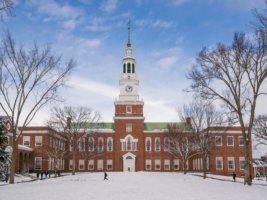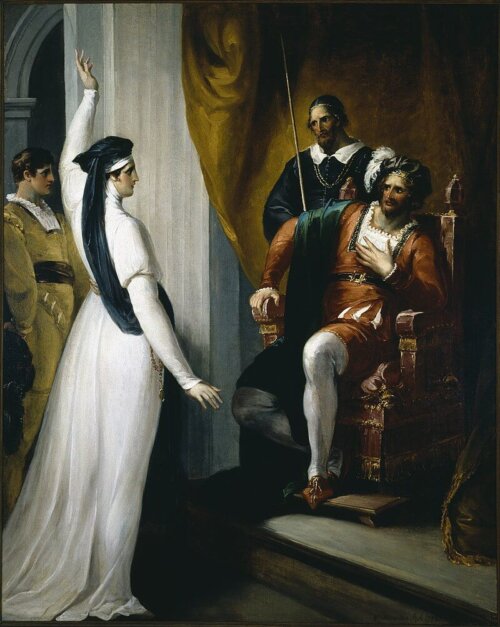Teaching American Politics in the Modern University

You may be surprised to learn of the growing movement to dispense with the study of American politics as a distinct subfield of political science, but this is a real and troubling challenge facing professors of political science today. Citing the increasingly global integration of politics, economics, and culture, a significant number of political scientists argue that faculty should no longer study regimes as their own separate subfields, but rather as part of a broader nexus of transnational institutions and actors. The United States, accordingly, should be studied as one of many types of regimes that partake in a globalized community. In other words, the subfield of American politics should be abolished, with its subject incorporated into the broader field of comparative politics. Such is the current pedagogical trend in political science.
At the 2009 national meeting of the American Political Science Association, four alumni of ISI’s Lehrman American Studies Center presented a counter-perspective about the role of American Politics in political science pedagogy. Gerson Moreno-Riano of Regent University, Lee Trepanier of Saginaw Valley State University, Joseph Fornieri of the Rochester Institute of Technology, and Rouven Steeves of the U.S. Air Force Academy conducted a four-hour seminar examining the importance of American politics as a distinct subfield. At the same time, they demonstrated the relevance of American politics to the dynamic and global nature of contemporary politics and the discipline of political science as a whole. The presenters argued that the teaching of American politics should instill a strong understanding of local and national domestic principles and politics while recognizing the reality of globalization and its impact on American politics. Contrary to the pedagogical trend within the broader discipline, these presenters made the case that the distinctive nature of the American regime requires a separate subfield in the study of political science.
Political scientists have always carved out a special place for study of particular regimes. In the first chapter of Book IV of the Politics, Aristotle categorizes the study of regimes into four types: the best regime itself, the best regime generally, the best regime for the circumstances available, and the best regime based on a presupposition. These four categories correspond to the four traditional subfields in the pedagogy of American political science: political theory, international politics, comparative politics, and American politics. The study of the best regime is the purview of political theory; the study of the best regime generally is the realm of international politics; the study of the best regime for the circumstances available is the subject of comparative politics; and the best regime based on a presupposition is the field of American politics.
The fact that Aristotle lists the best regime based on a presupposition as a subject of study for political scientists reveals something important about the nature of the social sciences. Like the physician, the political scientist must have experience particular to individuals as well as general knowledge: an adequate social science requires both a class of cases and a general theory, with neither reduced to the other. The reason one needs both particular cases and a general theory is that the social sciences are relatively imprecise when compared to the natural sciences. Rather than relying upon mathematical formulas, the social scientist must rely upon the proper habituation of his character and judgment to evaluate social and political phenomena. To learn about a regime rooted in a particular presupposition requires maturity and judgment, preferably developed through direct experience of that regime, and not merely quantitative analysis.
American politics, therefore, cannot be studied like any other regime, because its presupposition—its ideological character, its unique culture, its peculiar historical and political development—makes it non-quantifiable and to a certain extent non-comparable. American politics falls into the class of cases rather than general theory. This is neither to deny the influence of globalization upon the American regime nor to suggest the American regime exists as an isolated wonder. Of course, the effects of globalization impact the United States, but it will be felt differently here than in other countries because of its distinctive character; and, of course, the American regime exists within a tradition stretching back to classical antiquity. Thus, how certain ideas are translated into the American experience is peculiar and particular to the regime. In essence, what is needed is a study of globalization and tradition through the lens of the American regime.
To study globalization and tradition from the perspective of the United States makes not only theoretical sense; it also serves the proper end of education. For Aristotle, the purpose of social science is not merely to gain understanding of a regime or regimes, but to undertake an inquiry for the sake of acting and living well. If one expects one’s students to live good and noble lives—not to mention to become good citizens—then they must learn about the particular and unique nature of their regime. To learn American politics only as part of a comparative study of regimes is to deny students knowledge of how to become good citizens and good people in their own regime: for if the American regime is simply one of many, why should anyone adhere to its founding principles? Every regime has founding principles. Why should one become a good citizen when he can become a cosmopolite instead? What is the point of living in America when one can move somewhere else?
If teachers sincerely want their students to become good citizens and virtuous people, then they must teach about their regime as a peculiar entity, while at the same time revealing its global and traditional context. Because of the unique nature of the American regime, students can only become good citizens and good people if they understand the specifics of how their regime works. To learn American politics is to learn not only about the subject itself, but to learn how to become a good citizen and good person within that regime. American politics must, therefore, remain a separate subfield within the discipline of political science, not only for theoretical and pedagogical reasons but also to cultivate virtue and good citizenship.
Despite mounting resistance, the study of American politics is still alive. Presentations like the one sponsored by the Lehrman American Studies Center at the meeting of the APSA provide a sorely needed counter-perspective about what constitutes American politics and how it should be taught. Contemporary trends that deny the American regime’s unique presuppositions make our efforts all the more important. Fortunately, the Lehrman Center’s combination of in-person and online programming is a great help to faculty teaching the American regime within the context of an enduring tradition and pressing concerns. Approaching the study of the American regime from an interdisciplinary perspective—history, politics, philosophy, and economics—the Lehrman Center provides college teachers with a context to discover what is unique about the American regime and how best to teach the foundational principles of ordered liberty We need this help now more than ever.
This was originally published with the same title in The Canon in Fall 2019.




